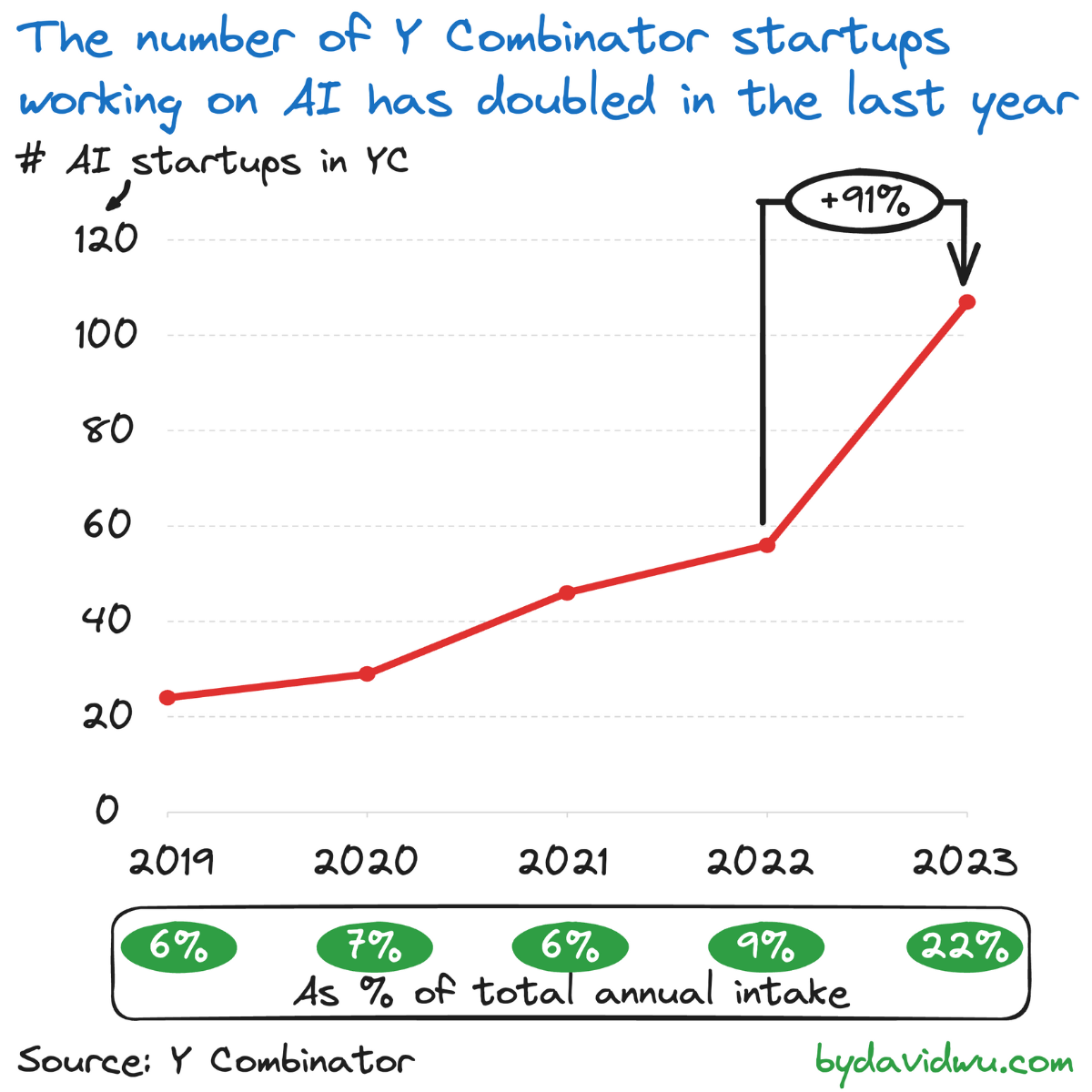🌏 #6 | The next startup boom is underway, buoyed by generative AI
Note: Dear reader, I'm back after a six-week break. To ensure I can keep on delivering high quality analysis and commentary, I'll be moving from publishing fortnightly to publishing monthly. Thanks for your support!
Rapid interest rate rises since 2022 have been bad news for startups. Valuations have plummeted. Capital has been harder to raise. The IPO window has narrowed. Big tech is pulling back on acquisitions. Customers aren’t as willing to pull out their wallets.
Yet, amid these challenging conditions, there has been a surge of interest in generative AI, driven by the wild success of ChatGPT released one year ago.
➡️ From big tech to startups
On one end of the spectrum, big tech is investing heavily in generative AI, both accelerating internal efforts and investing capital externally in generative AI unicorns like OpenAI and Anthropic.
On the other, startups are rapidly entering the market for generative AI applications. Keen early-stage VCs are driving down financial barriers to entry and increasingly powerful generative AI APIs are driving down technical barriers.
🤝 Y Combinator and generative AI
To understand generative AI startup activity, understanding what’s going on in Y Combinator, the leading Silicon Valley startup accelerator, is instructive.
Every 6 months, over 10,000 startups, apply for YC’s 3-month accelerator and $500,000 of investment, with a couple hundred — some 1.5% to 2% — accepted.
Buoyed by generative AI, over the last year, the number of YC-backed startups working on AI has doubled from 56 to 107. Across YC’s summer and winter 2023 batches, 1 in 5 of 490 startups were working on AI, up from 1 in 10 in 2022.
💡 What are AI startups in YC working on?
Many AI startups in YC are working on use cases leveraging foundational AI models like GPT-3.5/4, Llama, Stable Diffusion and Claude.
Some like OpenPipe are working on tools that help developers utilise LLMs. Others like Langdock aim to bring ChatGPT to enterprises or into specific industries, as Flint aims to do with schools. The “copilot” theme is present too, with Onyx working on an AI copilot for bankers.

🧠 How do YC’s partners think about generative AI?
In a conversation on their eponymous podcast, YC partners Michael Seibel and Dalton Caldwell suggest startups consider second-order applications of AI.
First-order applications are those that come to mind easily like summarising documents and generating emails. Competition, including from big tech, will be fierce.
Second-order applications arise from answering the following question: What is possible with generative AI in a way that truly wasn’t possible before?
For example, after the “iPhone moment” in 2007, maps and GPS were first-order applications for smart phones. Uber was a second-order application, which leveraged the powerful mapping, GPS and communication capabilities now in everyone's pockets to rethink the taxi industry.
Against the backdrop of increased economic uncertainty, the energy and optimism of the generative AI startup wave is well needed.
🙌 If you enjoyed this week’s newsletter, consider liking the LinkedIn post for this piece. I really appreciate your support in helping this newsletter reach a wider readership.
✨ Did you spot a typo or think of a topic you’d like to read about? Hit reply and let me know.
📨 To ensure this newsletter doesn’t go into your spam folder, add me to your contacts.